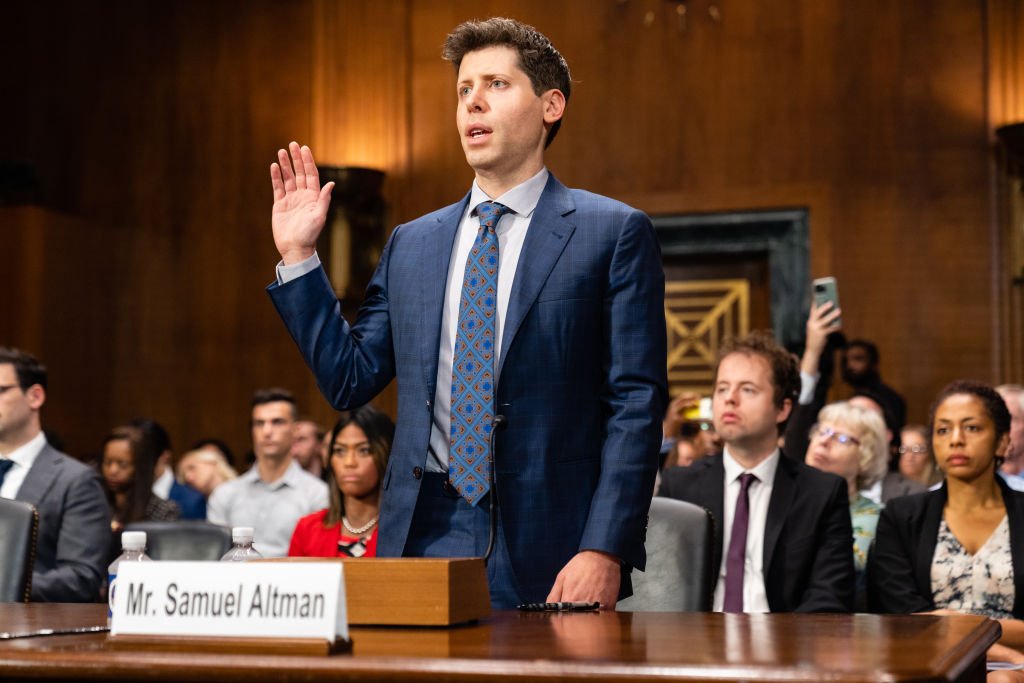
Anthropic, a close rival to OpenAI, more than doubled its spending from $280,000 in 2023 to $720,000 in 2024. Anthropic brought in Rachel Appleton, an alum from the Department of Justice, as its in-house lobbyist. OpenAI is also pushing Uncle Sam to get serious about AI and provide the right setup for tech growth.
[](https://redomatech.com/wp-content/uploads/2025/06/GettyImages-1255249519.jpg). Congressional folks chewed over more than 90 AI-related bills in the first half of the year while states tossed out over 700 AI laws on the table né?. On the flip side OpenAI snagged Chris Lehane a seasoned politico as their new VP of policy.
Together OpenAI Anthropic and Cohere put up a total of $2.71 million for their 2024 federal lobbying efforts. of A né?. President Donald Trump seems keen on loosening the reins to boost U.S né?. Even though Congress didn’t really move the needle much some states took matters into their own hands.
For instance Tennessee made moves to protect voice artists from having their AI twin made without permission while Colorado took on a tiered risk-based approach to AI policy né?. Sure, it might not be as flashy as the $61.5 million the wider tech industry tossed into lobbying during the same period, but it’s a pretty big jump from the $610,000 the three AI labs spent together in 2023.
Last year was pretty wild when it came to AI policy-making on the homefront né?. So, last year saw a big surge in companies turning up the heat on AI lobbying efforts at the U.S né?. AI supremacy né?. state has come close to laying down AI regulations as thorough as international frameworks like the EU’s AI Act.
The AI regulation debate is still going strong, with the federal government facing hurdles in getting the ball rolling on new laws. His recent moves, like axing executive orders from the previous admin that dealt with AI risks, suggest a lean towards fewer restrictions.
Looking ahead, Anthropic is calling for some targeted federal AI regulation within the next 18 months, stressing the need for proactive risk management né?. According to data from OpenSecrets a whopping 648 companies dived into AI lobbying in 2024 which is a pretty substantial leap from the 458 in 2023 marking a cool 141% year-over-year increase.
Now we’re talking about some heavy hitters like Microsoft throwing their weight behind legislations such as the CREATE AI Act which aims to set the standards for AI systems developed in the good ol’ U.S né?. federal level, all because of that pesky regulatory uncertainty that just wouldn’t budge. Meanwhile, OpenAI was all about pushing for the Advancement and Reliability Act, suggesting the creation of a dedicated government hub for AI research.
Most AI labs, especially those companies laser-focused on commercializing AI tech, upped their game in supporting legislative initiatives in 2024 compared to the previous year.
For instance, OpenAI saw a surge in lobbying cash flow, hitting $1.76 million in 2024 from $260,000 in 2023 né?. Over in California Governor Gavin Newsom put pen to paper on numerous AI-related safety bills some of which put the heat on AI companies to spill the beans on their training.
Despite these state-level hoorahs no U.S. Likewise, Cohere, a startup all about enterprises, ramped up its spending to $230,000 in 2024 from $70,000 in 2022.
To get cozy with policymakers, both OpenAI and Anthropic made some strategic hires in the past year


